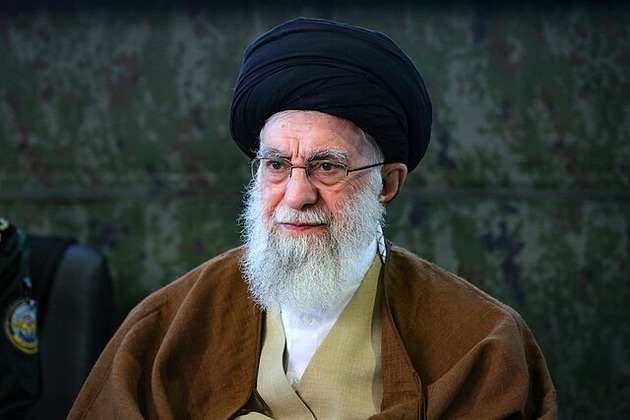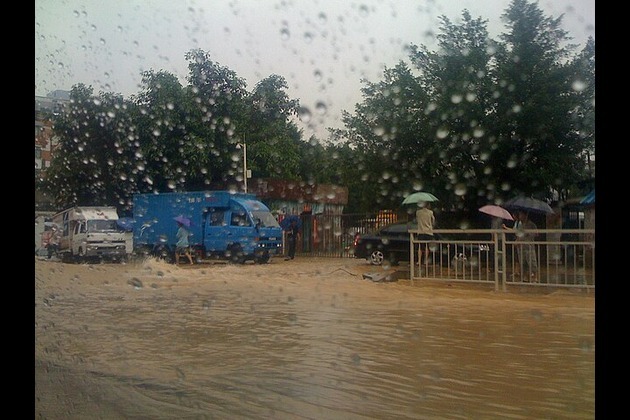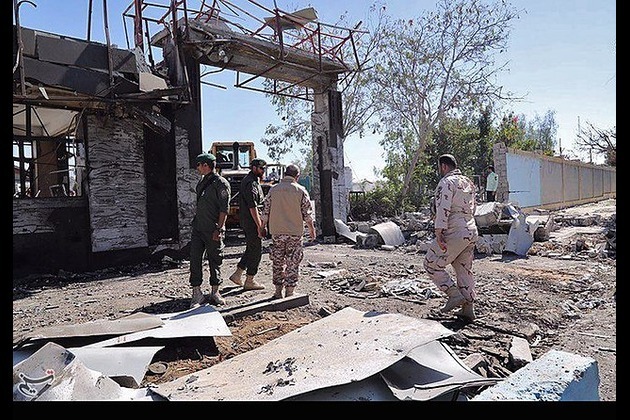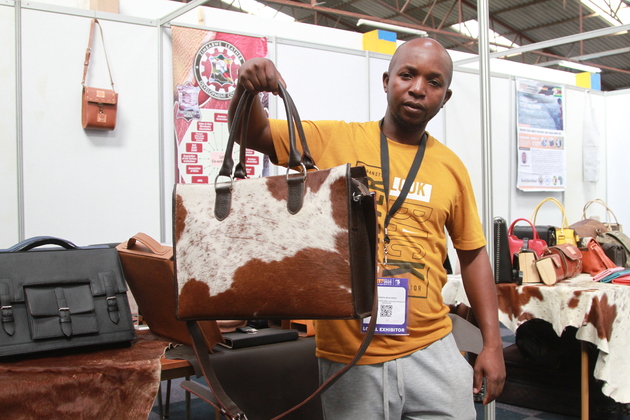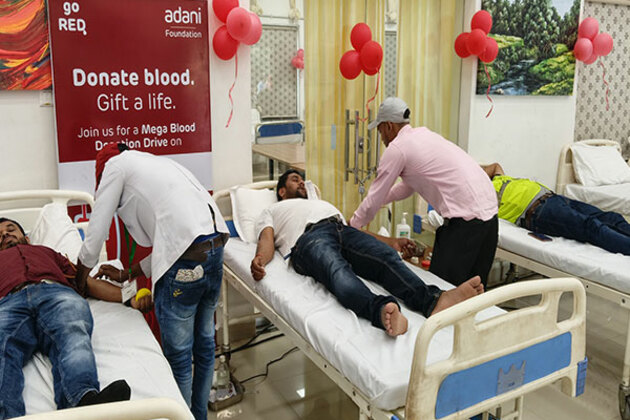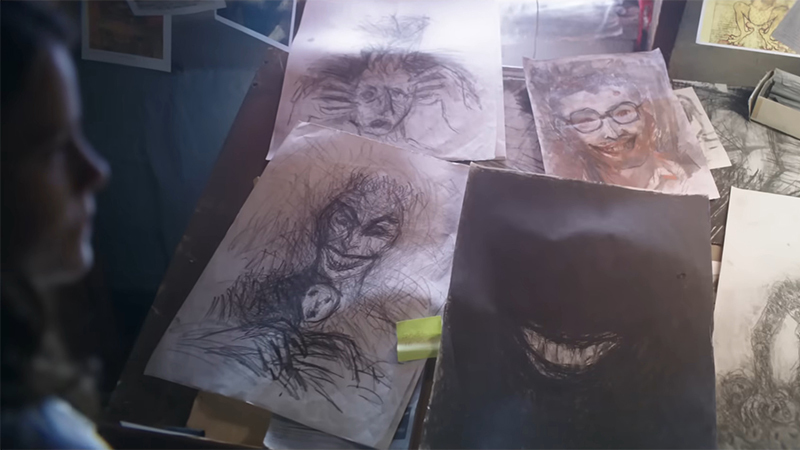The right to water is out of reach for many South Africans: case study offers solutions
The Conversation
24 Jun 2025, 15:06 GMT+10
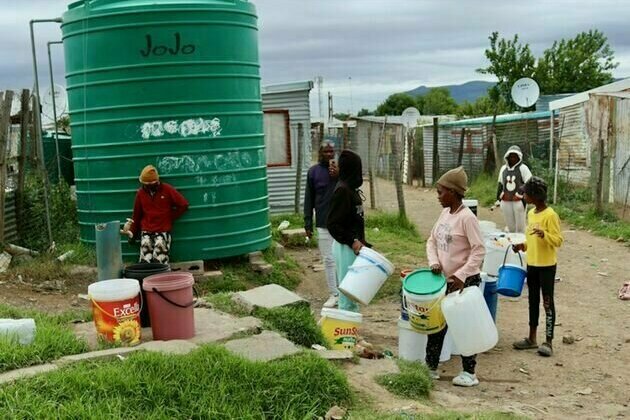
South Africa's constitution says "everyone has the right to have access to sufficient food and water". In reality, however, this right is not enjoyed by all. Many places experience regular water shortages or cut-offs. Some people struggle to access water for drinking, household use and commercial use (mines, factories and agriculture).
In many places, tap water is of poor quality, with dangerous waterborne illnesses, such as cholera, typhoid fever and diarrhoeal diseases resulting. Water protests and dehydration are commonplace.
As a researcher who studies equitable economies, water services and education, I set out to identify the problems that have caused precarious water provision in the Chris Hani District Municipality in South Africa's Eastern Cape province. This municipality is a hub of six towns, where 849,000 people live, mostly (63.8%) in rural areas.
For years, the people of this municipality have experienced collapsing water systems and broken sewage plants. Over 35% of households have no taps in their homes or have to share outdoor taps that are more than 200 metres away from the home.
My research findings were based on 10 interviews with municipal officials and water consumers. I also included information from official reports from the municipality and government departments. My research found that the municipality does not always comply with the water law that says everyone must be provided with a minimum amount of free, clean, drinkable water every day.
I also found that it has problems collecting payment for water because a non-payment culture is prevalent in the area. Without reliable revenue, the municipality cannot procure chlorine, maintain pumps, or negotiate bulk-water contracts. It ends up trapped in a vicious cycle of water scarcity and service deterioration.
Read more: Cholera in South Africa: a symptom of two decades of continued sewage pollution and neglect
I conclude from my study that residents who can afford to pay should do so, while the indigent (impoverished residents of the area) should have their water subsidised by the government.
To improve the water service in Chris Hani District Municipality, the infrastructure needs an overhaul. The dams and reservoirs need to be upgraded, dilapidated pipes and equipment replaced and revenue collection improved. Finally, the municipality must ringfence the payments coming in for water and keep those to fund improvements to the service.
My research found that the major water problems in the Chris Hani District Municipality were:
water scarcity due to drought, water leaks and population growth
ageing water pipes and systems that have not been properly maintained and repaired
electricity cuts at water pumping stations
politics - although councillors are usually not subject matter experts of the departments they oversee, their political power enables them to influence the operations of the directorates. This can undermine the expertise of local government staff members who are experts, such as water engineers, plumbers and water technicians.
vandalism of the water system
a water system that's not upgraded to cope with the growing population
residents who don't always pay for the water they use.
These problems tend to feed into each other. For example, many households that can afford to pay for water refuse to do so because they are discouraged by the erratic water supplies, or don't trust that their bills are accurate, and because of the culture of non-payment for municipal services.
One participant reported that:
the municipality does not send invoices. When they do, most of the time, the bill is inflated because they do not take meter readings but just estimate the household consumption.
The research also found that the municipality's failure to comply with the 1997 Water Services Act meant that they weren't providing the legal minimum of six kilolitres of clean drinking water per family per month. This is roughly 25 litres of water per person per day.
Some participants said they'd been without water for extended periods, along with their fellow community members. This highlights that the municipality undermined the water law's requirement for water services to be "effective enough to ensure that no consumer is without supply for more than seven full days in any given year".
Solving the water problems in Chris Hani District Municipality means finding ways to provide free, clean drinkable water and also bringing in some income to help pay for the water services. As one of the people I interviewed said:
to achieve the water provision responsibility, the municipality needs to pay for bulk water from the Department of Water and Sanitation, construction cost or capital cost, and operations and maintenance cost. These costs are not all covered by grant funding. Therefore, affording consumers should pay and the indigent should get subsidised by government.
Read more: South Africa is paying a heavy price for dysfunctional local government
A way forward would be for the municipality to set up a policy framework that would enable bulk water supply to be upgraded and dilapidated infrastructure to be replaced. This policy framework should also make it possible to improve revenue collection.
The lack of payment compromises delivery of water services by municipalities. Poverty is one of the factors contributing towards the non-payment of services by residents. This underscores that job creation must be prioritised.
To discourage the non-payment culture, the municipality should be more transparent in its water bills. For example, they could provide user-friendly access to account information (bills, usage trends and payment history). This would create more trust that residents are being billed the correct amount.
Read more: South Africa's unsafe water supplies: licensing service providers won't solve the issue
Another helpful step would be ending theft and vandalism of water infrastructure. This would need the municipality to set up a close working relationship with community members and the South African Police Service.
Finally, water services need to be ringfenced. This means that payments for water are kept separately by the municipality and used only for improving the water service. Research has already found that municipalities that don't ringfence water payments end up not investing enough to keep their water systems in good shape.
The effective provision of water services requires everyone involved to play their respective roles well - the municipality must consistently deliver, and residents who are not impoverished must consistently pay.
 Share
Share
 Tweet
Tweet
 Share
Share
 Flip
Flip
 Email
Email
Watch latest videos
Subscribe and Follow
Get a daily dose of Johannesburg Life news through our daily email, its complimentary and keeps you fully up to date with world and business news as well.
News RELEASES
Publish news of your business, community or sports group, personnel appointments, major event and more by submitting a news release to Johannesburg Life.
More InformationInternational
SectionMultiple Israeli troops die as armored personnel carrier is blown up in Gaza
KHAN YOUNIS, Gaza - Seven Israeli soldiers were killed in a large explosion in southern Gaza's Khan Younis area on Tuesday night,...
Khamenei remains in hiding as clerics fast-track succession plans
DUBAI, U.A.E.: Iran's top clerics are quietly accelerating succession plans for Supreme Leader Ayatollah Ali Khamenei, who was threatened...
Monsoon floods batter China, raising climate concerns
BEIJING, China: Extreme weather is once again testing China's resilience, as intensifying monsoon rains trigger floods across major...
UK and France issue heat warnings as temperatures climb
LONDON/PARIS: British and French authorities have warned people to stay safe as an early summer heat wave brings unusually high temperatures...
Muslim bloc calls on Israel to sign Nuclear Non-Proliferation treaty
ANKARA, Turkey: Amid rising tensions in the Middle East, the Organisation of Islamic Cooperation (OIC) announced it would form a new...
Trump goes on social media to announce Israel-Iran ceaeefire
WASHINGTON DC, - U.S. President Donald Trump has claimed a ceasefire has been reached between Israel and Iran. He made the claim on...
Africa
SectionZIMBABWE-CHINA-AFRICA TRADE-INTERVIEW
(250625) -- BULAWAYO, June 25, 2025 (Xinhua) -- A trader from Zimbabwe showcases leather products at a trade fair in Bulawayo, Zimbabwe,...
Adani Foundation honours Gautam Adani's 63rd birthday with record-breaking blood donation drive
Ahmedabad (Gujarat) [India], June 25 (ANI): To commemorate the 63rd birthday of Group Chairman Gautam Adani on June 24, the Adani Foundation--the...
Drunken Congolese soldier kills colleagues in altercation media
The shooting in the war-torn African country reportedly left two servicemen dead on the spot, while three others died later of their...
'Drunken' Congolese soldier kills colleagues in altercation - media
The shooting in the war-torn African country reportedly left two servicemen dead on the spot, while three others died later of their...
Interview: ICRC head marks 20 years of cooperation with China, citing strong partnership
ICRC praised China's strong partnership in promoting international humanitarian law over 20 years of cooperation, while warning of...
TikTok named Kenyas top misinformation platform report
A majority of survey respondents have said the app spreads false content, according to Reuters TikTok has become the top source of...


